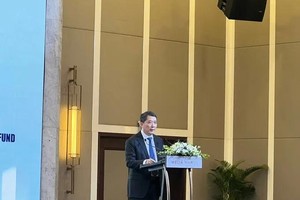 |
Illustrative image |
The WB monthly report said that while domestic consumption remains robust, credit growth slowed down, reflecting weak credit demand.
Potential further tightening of global financial conditions warrants flexible FX management to accommodate external conditions. Additionally, acceleration of public investment disbursement could support aggregate demand and economic growth in the short run while ensuring investments in human resources and resilient and green infrastructure will bolster long term economic development, said the report.
In April 2023, credit growth decelerated to 9.2 percent year-on-year from 9.9 percent in March and 12.2 percent in February, signaling a slowing down economy. Noteworthy, credit growth deceleration occurred despite SBV’s policy and lending rate cuts in March and ample market liquidity.
Import revenue in April dropped drastically compared to the same period last year including electronics and computer parts (-19.6 percent), smart phones (-64.4 percent ) and machinery (-15.3 percent)
This is reflecting weakening global demand, especially in the US and EU, with exports to these two markets falling by 22.1 percent and 14.1 percent year-on-year, respectively, in the first four months of 2023.
Furthermore, global uncertainties continued to weigh on investor confidence. FDI commitment reached US$3.4 billion in April 2023, an increase of 46 percent compared to March. However, cumulative FDI commitment for the first four months of 2023 only reached US$8.8 billion, 17.9 percent lower than the same period in 2022.
The monthly budget balance registered a small surplus of US$160 million in April. Budget revenue decreased by 24.7 percent in comparison to the same period last year and public expenditure had a year-on-year increase of 13.8 percent in April.














)

)







